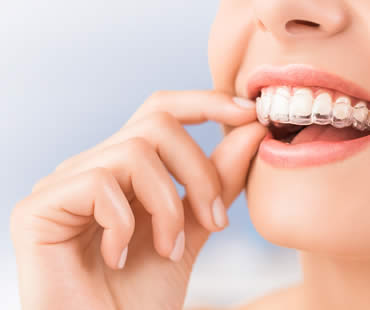
Smile Brighter: How Dairy Products Can Improve Your Dental Health
Dairy products have long been known for their nutritional value and importance in maintaining a healthy diet.
From childhood, we have been taught to drink milk and eat cheese as they are high in calcium, which is essential for strong bones and teeth. However, dairy products can also play a crucial role in maintaining good dental health.
Dairy Products and their Importance in our Diet:
Dairy products include milk, cheese, yogurt, and butter. They are rich sources of nutrients such as protein, calcium, vitamin D, phosphorus, and potassium.
These nutrients are essential for the proper functioning of the body. Calcium is particularly important for building strong bones and teeth.
Dental Health and its Relation to Overall Health:
Maintaining good dental health is not just about having a bright smile; it is also crucial for overall health. Poor dental hygiene can lead to tooth decay and gum disease.
If left untreated, these conditions can cause infections that could spread throughout the body. Recent studies have also linked poor oral health to other serious medical conditions such as heart disease, stroke, diabetes, and respiratory problems.
Therefore it’s important to understand the benefits of dairy products on oral hygiene so that you can make informed decisions about your diet. The next section will discuss how dairy products can help with dental health by providing essential nutrients such as calcium and vitamin D that help strengthen teeth against tooth decay while neutralizing harmful acids within the mouth at the same time!
The Benefits of Dairy Products for Dental Health
Dairy products are an important source of nutrients that help support healthy teeth and gums. Here are some of the key nutrients found in dairy and how they contribute to dental health:
Calcium and Phosphorus: The building blocks of strong teeth
Calcium and phosphorus are essential minerals for maintaining strong bones, including your teeth. Calcium helps to build and maintain the structure of your teeth, while phosphorus works together with calcium to strengthen tooth enamel.
Dairy products such as milk, cheese, and yogurt are rich sources of both calcium and phosphorus. Consuming these foods regularly helps ensure that your body has the nutrients it needs to keep your teeth strong.
Vitamin D: Essential for proper absorption of calcium
Vitamin D is essential for proper absorption of calcium in the body. Without enough vitamin D, your body may not be able to absorb all the calcium you consume through food or supplements.
Fortunately, many dairy products are fortified with vitamin D. This means that they have been enriched with additional vitamin D to help ensure adequate absorption of calcium. Vitamin D can also be obtained from sunlight exposure or supplements.
Casein: A protein that helps protect tooth enamel from erosion
Casein is a protein found in milk and other dairy products that has been shown to help protect tooth enamel from erosion caused by acidic foods and drinks. This is because casein forms a protective layer on the surface of teeth which can help prevent acid from attacking tooth enamel.
In addition to protecting tooth enamel, casein may also have antibacterial properties that help prevent cavities. By consuming dairy products regularly, you can reap the benefits of this important protein for dental health.
The Role of Dairy Products in Preventing Tooth Decay
How Dairy Products Can Neutralize Harmful Acids in the Mouth
One of the most significant benefits of dairy products for dental health is their ability to neutralize harmful acids in the mouth. The bacteria in our mouths feed on sugars and carbohydrates, producing acid as a byproduct that can erode tooth enamel and lead to decay.
However, consuming dairy products can help neutralize this acid, preventing damage to teeth. This is because dairy products contain calcium and phosphorus, which help remineralize enamel and make it more resistant to decay.
The Importance of Saliva Production in Preventing Tooth Decay
Another way that dairy products can help prevent tooth decay is by promoting saliva production. Saliva is essential for dental health because it helps wash away food particles and bacteria from the mouth, reducing the risk of decay. Additionally, saliva contains minerals such as calcium and phosphorus that can help remineralize enamel and repair minor damage to teeth.
Consuming dairy products can stimulate saliva production by triggering a reflex that increases the flow of saliva in the mouth. This means that eating cheese or drinking milk after a meal could be an effective way to promote good oral hygiene and prevent tooth decay.
Overall, incorporating more dairy into your diet can have significant benefits for your dental health. Not only do dairy products contain essential nutrients such as calcium, phosphorus, and vitamin D that are crucial for maintaining strong teeth and bones, but they also have unique properties that can help prevent tooth decay by neutralizing harmful acids in the mouth and promoting saliva production.
Dairy Alternatives for Those with Lactose Intolerance or Vegan Diets
For those who are lactose intolerant or on a vegan diet, obtaining the necessary nutrients found in dairy products can be challenging. However, there are still many non-dairy sources of calcium, phosphorus, and vitamin D that can be incorporated into your diet to promote dental health.
Non-Dairy Sources of Calcium and Phosphorus
Calcium and phosphorus are essential minerals for maintaining strong teeth and bones. Fortunately, there are many non-dairy sources of these minerals that can be easily incorporated into your diet.
Some examples include:
- Leafy greens such as kale and spinach
- Fatty fish like salmon or sardines (canned with bones)
- Nuts and seeds like almonds, chia seeds, and sesame seeds
- Tofu made with calcium sulfate
- Fortified plant milks such as soy milk or almond milk (check the label to ensure it is fortified with calcium)
Plant-based Milk Alternatives
If you’re looking for a dairy-free alternative to cow’s milk, there are many plant-based options available. However, it’s important to note that not all plant milks offer the same nutritional benefits as cow’s milk. When choosing a plant-based milk alternative, look for options that are fortified with vitamins and minerals like calcium and vitamin D.
Some popular plant-based milk alternatives include:
- Soy Milk: High in protein and often fortified with calcium and vitamin D.
- Almond Milk: Low in calories but not as high in protein or other nutrients compared to soy milk.
- Oat Milk: A good source of fiber, but typically lower in protein and calcium unless fortified.
- Rice Milk: Typically low in protein and needs to be fortified with vitamins and minerals to offer similar benefits to cow’s milk.
Ultimately, finding the right dairy alternative for you will depend on your individual preferences and nutritional needs. Be sure to consult with a healthcare professional or registered dietitian if you have any concerns or questions about incorporating non-dairy sources of nutrients into your diet.
How to Incorporate More Dairy into Your Diet for Dental Health
Now that we understand the benefits of dairy products for our dental health, let’s explore how we can incorporate more of them into our daily diet. Here are a few simple suggestions:
Suggestions for Incorporating More Dairy into Your Meals
- Add yogurt to your breakfast routine: yogurt can be a great addition to your morning meal. You can add it to your cereal, smoothie or oatmeal.
- Snack on cheese and crackers: Cheese is an excellent source of calcium and can be combined with high-fiber crackers as a tasty snack.
- Drink milk with meals: Milk is often seen as a drink for children, but it is beneficial for adults too. Try adding low-fat milk to your coffee or tea instead of creamer or sugar.
- Blend up a milkshake: For those with a sweet tooth, try blending low-fat or nonfat milk with fresh fruit for a delicious, nutritious and refreshing treat.
Tips for Choosing Low-Sugar Dairy Products
Dairy products like yogurt and flavored milk sometimes contain added sugars which can negate the benefits of consuming dairy. Here are some tips to help you choose low-sugar dairy options:
- Choose plain yogurts instead of flavored ones: Plain yogurts generally contain less sugar than flavored varieties. You add fresh fruit if you want some extra sweetness.
- Pick low-fat or skimmed options over full fat ones: Low fat dairy products usually have less calories and less added sugar than full fat varieties
- Avoid sugary cereals that are marketed as being high in calcium: Some cereals that claim to be high in calcium often contain large amounts of added sugar.
- Read labels: Be sure to read the nutritional information panels to check for added sugars, especially in flavored milks and yogurts.
By following these simple suggestions and tips, you can easily incorporate more dairy products into your diet and enjoy the dental health benefits that come with it.
Maintaining Good Dental Hygiene Through Diet
While dairy products are an important component of a dental-healthy diet, they should be consumed in moderation as they can also be high in sugar and fat. When choosing dairy products, opt for low-sugar options such as plain yogurt or milk without added sugar.
It’s also important to practice good dental hygiene habits such as brushing twice daily with fluoride toothpaste and flossing regularly. Incorporating more dairy into your diet doesn’t have to be difficult – try adding cheese to your omelets or using Greek yogurt as a substitute for sour cream in recipes.
For those who are lactose intolerant or follow a vegan diet, there are plenty of non-dairy sources of calcium and vitamin D available such as fortified plant-based milks and dark leafy greens. By making small changes to your diet and practicing good dental hygiene habits, you can improve your overall health and maintain strong, healthy teeth for years to come.
Do not let another day go by without taking care of your dental needs. Request an appointment now at our Fernandina Beach dental office!






